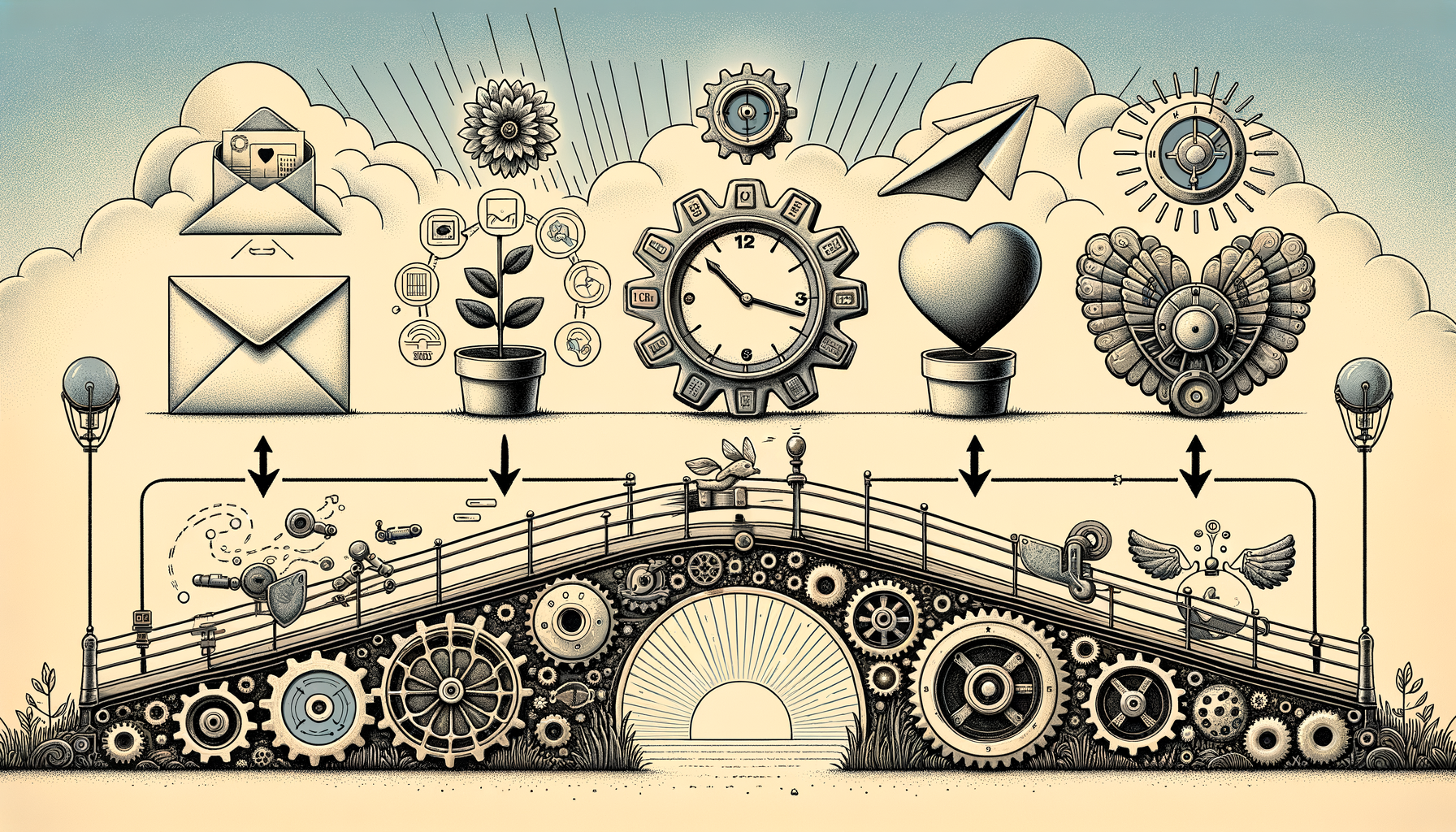“Mastering Your Business Growth: Unveiling the Potency of Marketing Automation and Email Marketing”

The modern marketplace is characterized by rapid changes, largely thanks to advancements in technology. Now, businesses can access a variety of platforms and services that help them streamline their operations, save time, and reach their ideal customers more effectively. Amid these technological offerings is marketing automation, a powerful tool that replaces manual, time-consuming tasks with automated solutions, and enables businesses to nurture prospects with highly personalized, useful content that assists them in making informed buying decisions.
The Origins and Advancements of Marketing Automation
Advancements in marketing have been largely driven by technological innovation. The concept of marketing automation was born from traditional email marketing, which began around the mid-1990s. With the advent of widespread internet use, businesses began to see the potential of reaching customers through their inboxes. However, this form of communication was mostly one-way, and the messages were not personalized nor targeted.
That was until marketing automation was introduced. Bridging the gap between mass direct emails and personalized messaging, marketing automation became a game-changer for businesses. It allowed customization, providing opportunities for businesses to meet the distinct needs of their customers. As a result, customer engagements improved, translating into tangible business profits.
Understanding Marketing Automation
Marketing automation essentially refers to using software to automate, measure, and streamline marketing tasks and workflows. This typically involves generating leads, nurturing them into prospects, converting prospects into customers, and maintaining customer loyalty. The automation software manages these tasks effectively, increasing productivity, coherence, and accuracy.
More than just email marketing, marketing automation also encompasses other forms of digital marketing, including social media, webinars, SMS messages, and much more. Its robust functionality has helped to save time and increase operational efficiency—companies can focus more on strategy and less on logistics.
The Power of Email Marketing
Despite the growth of other forms of interactive digital channels, email marketing remains the cornerstone of effective automating marketing. Why? The answer is pretty clear—email is omnipresent. With billions of email users worldwide, businesses that can harness this audience’s potential have a significant edge.
Furthermore, email marketing is more personalized and customizable than ever before. Marketing automation tools have made it possible to send the right emails to the right customers at the right time. For instance, you can send welcome emails to new subscribers, birthday greetings to loyal customers, and special discounts to frequent buyers. This level of personal experience often stands out, leading to a deeper link with the customer.
Growing Your Business with Marketing Automation
Marketing automation helps businesses grow and nurture their customer relationships. With personalized content, you can ensure consistent and stable customer engagements, which further enhances customer loyalty and brand reputation. Automation also helps businesses with lead scoring, which rates a prospective customer’s likelihood of purchasing based on their actions. Implementing lead scoring helps allocate marketing resources more effectively, ensuring a higher return on investment.
Guidelines for Successful Marketing Automation
1. Define Your Goals: Before starting your marketing automation journey, clearly define your desired outcome. Whether it’s lead generation, sales growth, or customer engagement, having a clear goal creates a path for success.
2. Choose the Right Tool: There are many marketing automation tools available today. Do your research and select one that aligns with your business requirements and goals.
3. Establish Lead Nurturing Programs: Lead nurturing is critical for any businesses. It involves forming relationships with potential clients throughout every step of the customer journey to facilitate their transition from leads to loyal customers.
4. Quality Matters Over Quantity: In email marketing, make sure to send valuable content. Relevant, meaningful, and engaging content impresses subscribers, encouraging them to respond favorably to your calls-to-action.
5. Nurture Existing Customers: Remember, gaining a new customer is significantly costlier than retaining an existing one. Show appreciation to your loyal customers by offering promotions, discounts, or exclusive content.
6. Analyze and Improve: Lastly, regularly analyze your marketing strategies and make necessary improvements. Use key metrics such as click-through rates, open rates, and conversion rates to get insights.
The Future of Marketing Automation
With increasing reliance on technology, there is no doubt that marketing automation will continue to be a vital tool for businesses. Its future is poised to be even brighter with the advent of artificial intelligence (AI) and machine learning. These advancements will further refine marketing automation, making it more personalized, relevant, and efficient.
In a nutshell, marketing automation has emerged as an indispensable element in the digital marketing landscape. Its features and benefits have made it the go-to solution for businesses striving to provide personalized, engaging, and timely content to their customers. As technology continues to evolve, so will marketing automation, making it a smart investment for both the present and the future.
In conclusion, marketing automation, and more specifically, email marketing automation, is a valuable tool for businesses of all sizes. It fosters growth, increases efficiency, and creates a more personalized approach to marketing communications. By implementing it wisely and adapting to its advances, businesses can rest assured that their marketing efforts will pay off in attracting, engaging, and retaining customers more effectively. Despite being an old method, the fundamentals of email marketing are still relevant and crucial today, and when used in conjunction with new technologies, they can propel your business into a prosperous future.

Recent Comments